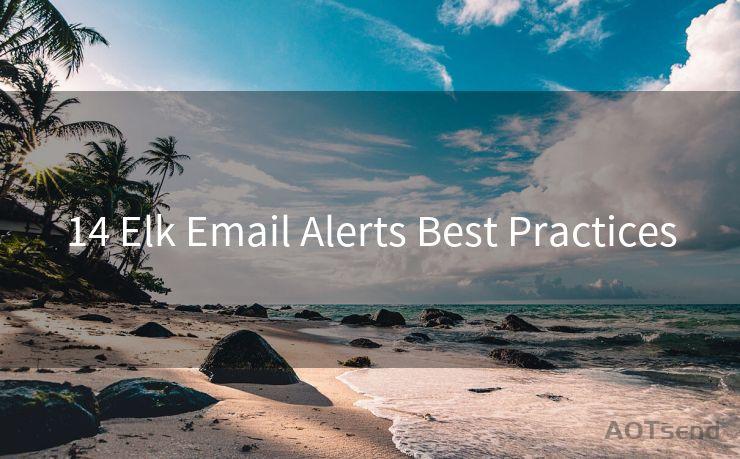14 Elk Email Alerts Best Practices




When it comes to managing logs and monitoring systems, the ELK stack (Elasticsearch, Logstash, and Kibana) stands out as a powerful tool. One of the key features of this stack is its ability to send email alerts, notifying administrators of potential issues or unusual activity. However, to make the most of this functionality, it's essential to follow best practices. Here are 14 best practices for setting up ELK email alerts efficiently.
1. Define Clear Alert Criteria
Before setting up alerts, clearly define the criteria that trigger them. This ensures that alerts are relevant and actionable, preventing information overload.
2. Use Meaningful Subject Lines
The subject line of an alert email should provide a clear, concise summary of the issue. This helps recipients quickly understand the nature of the alert and take appropriate action.
3. Prioritize Alerts
Not all alerts are equally urgent. Implement a prioritization system, such as using different email subjects or flags, to indicate the severity of an alert.

4. Include Relevant Information
The body of the email should contain all the necessary information for the recipient to understand and respond to the alert. This includes timestamps, log messages, and any other contextual data.
5. Keep It Simple
Avoid overwhelming recipients with too much information. Stick to the essentials and provide links to more detailed information if needed.
6. Test Alerts Regularly
Regularly test your alert system to ensure it's working as expected. This includes verifying that emails are being sent, received, and contain the correct information.
7. Use Templates for Consistency
Create email templates for different types of alerts. This ensures consistency in messaging and makes it easier to manage and update alert emails in the future.
8. Avoid False Positives
Fine-tune your alert criteria to minimize false positives. Frequent false alarms can lead to alert fatigue, reducing the effectiveness of the system.
9. Provide Clear Action Steps
Include clear instructions in the email on how to respond to the alert. This helps recipients take swift and effective action.
10. Consider Time Zones
When setting up alerts, consider the time zones of the recipients. Ensure that alerts are sent at appropriate times to maximize response efficiency.
11. Use Escalation Procedures
Implement escalation procedures for critical alerts that are not addressed within a certain timeframe. This ensures that important issues do not fall through the cracks.
12. Monitor Alert Performance
Track the performance of your alert system, including response times and resolution rates. Use this data to improve the system over time.
13. Secure Your Emails
Ensure that alert emails are sent securely, using encryption and other security measures to protect sensitive information.
14. Continuously Improve
Regularly review and update your alert system based on feedback and performance data. This helps ensure that the system remains effective and relevant as your infrastructure and needs evolve.
By following these best practices, you can set up an efficient and effective ELK email alert system that keeps your team informed and responsive to potential issues. Remember, the key is to strike a balance between providing enough information to act on and avoiding information overload.
🔔🔔🔔
【AOTsend Email API】:AOTsend is a Managed Email Service for sending transactional emails. Support Email Types: reminders, authentication, confirmations, notifications, verification codes, invoices, password resets, account activations, billing statements, two-factor authentication (2FA), and one-time passwords (OTP) emails, etc. $0.28 per 1000 Emails. 99% Delivery, 98% Inbox Rate.
You might be interested in:
Why did we start the AOTsend project, Brand Story?
What is a Managed Email API, How it Works?
Best 25+ Email Marketing Platforms (Authority,Keywords&Traffic Comparison)
Best 24+ Email Marketing Service (Price, Pros&Cons Comparison)
Email APIs vs SMTP: How they Works, Any Difference?




Scan the QR code to access on your mobile device.
Copyright notice: This article is published by AotSend. Reproduction requires attribution.
Article Link:https://www.mailwot.com/p5329.html



